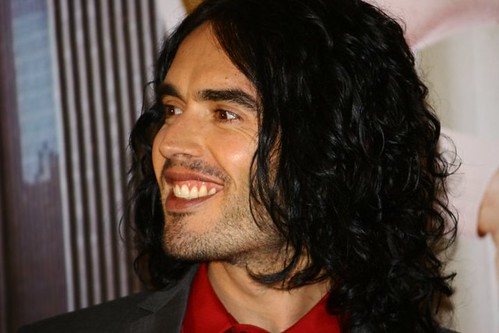How Russell Brand maintains his income and influence
Russell Brand #RussellBrand

During the 2000s Russell Brand was ubiquitous in the British media, adopting a scattergun approach that saw him host his own BBC Radio 2 show, present Big Brother spinoff shows, work the chatshow circuit, tour his live comedy act, present documentaries, write a bestselling autobiography and even football blogposts for the Guardian, before heading off to Hollywood to briefly achieve global fame.
Nowadays he has a much smaller but still profitable media empire of his own, built on a set of online platforms that barely existed when he was at the peak of his fame. As a result he retains his direct access to his loyal audience, unlike in a previous era where he could be taken off air by an employer pending an investigation into allegations of sexual assault and rape – which Brand has denied.
Core to Brand’s media operation is his YouTube channel, which has undergone multiple reinventions since the then Labour leader, Ed Miliband, made a late-night dash to appear on it in a desperate attempt to win over young voters during the 2015 general election.
His YouTube output now ploughs a vaccine-sceptic and Trumpian furrow, seemingly aimed at a rightwing audience in the US, where interviews with the former Fox News host Tucker Carlson sit alongside grabby headlines such as: “So, Trump Just Said THIS About Vaccines And It Changes EVERYTHING.”
Sara McCorquodale, the chief executive of the social media analysis agency CORQ, said Brand’s YouTube channel would be making a healthy sum for the comedian and self-styled wellness guru, based on an influencer marketing calculator. “He is most likely making £2,000 to £4,000 per video, not taking into account any affiliate deals and brand sponsorships that might be running in the background,” she said.
Based on five videos a week, this could easily produce the best part of a £1m a year.
Although Brand often begins his YouTube videos by addressing his “6.5 million awakened wonders” who subscribe to his channel, the audience for his individual videos tends to be between 500,000 and 1 million viewers. That is a healthy number for him, by any measure, but far from making him one of the biggest names on YouTube.
McCorquodale said Brand’s output seemed to be based on receiving money through programmatic advertising and directly from viewers, rather than signing the endorsement deals used by other influencers. This means leaning into YouTube’s algorithm in order to keep view counts up and working out what is likely to drive the most clicks. “He’s found out his audience like post-Trump, QAnon, ‘everyone’s against us’ content,” McCorquodale said. “That’s what drives the most views. This route means he is making most of his money through content and not brand deals. You have to figure out what drives most views so you can drive most revenue.”
She said the risk was that YouTube could choose to take away his ability to generate money. The Google-owned website did not respond to a request for comment but has rules against real-life behaviour “that harms our users, community, employees or ecosystem”, although the bar for applying these can be relatively high.
McCorquodale said she would not be surprised if Brand launched some kind of exclusive paid-for content in the aftermath of the Sunday Times investigation, capitalising on the idea that he is under further attack from the mainstream media. Another option for Brand is increasing reliance on Rumble – a platform that positions itself as a conservative-friendly version of YouTube – where Brand already posts daily videos filmed at his Oxfordshire home.
Luminary, the subscription podcast company, produces the interview show Under the Skin with Russell Brand. On Monday, Luminary did not respond to requests for comment on whether it still had a business relationship with Brand, although the comedian’s website is now pointing to a new self-produced podcast called Stay Free with Russell Brand.
True believers can sign up to be one of his “awakened wonders” for a minimum of $60 (£48) a year to receive exclusive content, guided meditations and go on walks with Brand.
All of this appears to be successfully generating money for Brand, whose personal company – called Pablo Diablo’s Legitimate Business Firm Ltd and co-owned with his wife – saw its cash reserves grow by £2m in the last financial year.
As a result, even though Brand may not be the household name he used to be, he can retain a substantial degree of influence – and earnings – from targeting a smaller number of devoted people.
Kat Molesworth, a brand campaign consultant, said that the allegations might only strengthen Brand’s bond with his fans. “Strong parasocial relationships and the increase in time being spent online means that people are less willing to give up their relationships with these creators and so they will find reasons to excuse what’s happened to defend that person because they feel emotionally attached to them,” she said.
But being a content creator can be hard work, with the requirement to regularly upload fresh content, which Brand usually fulfils by producing a new daily video every evening at 5pm. On Monday, after the sexual assault allegations had been aired by the Sunday Times and Channel 4, no video appeared, leaving his subscribers waiting to hear his side of the story.